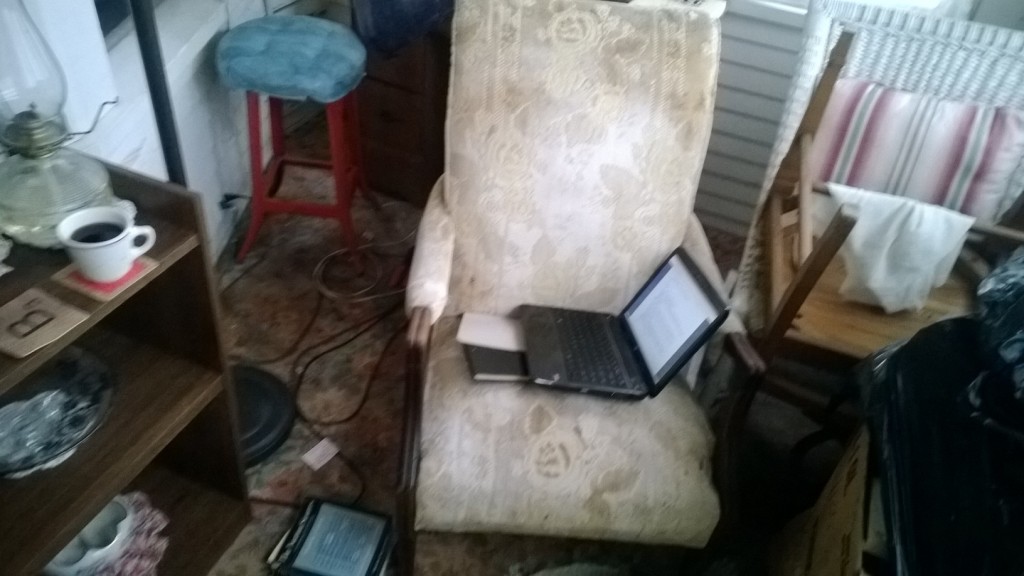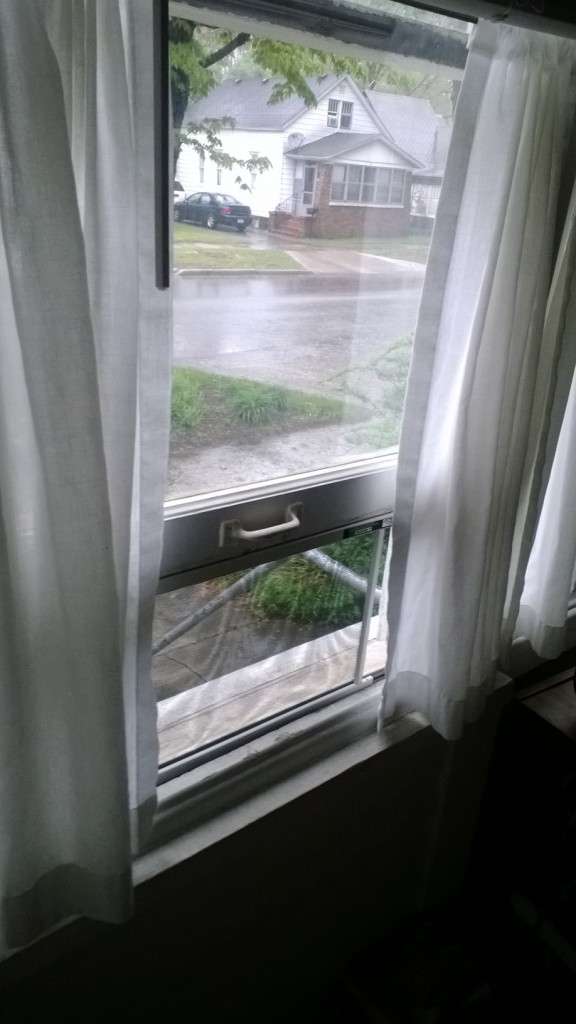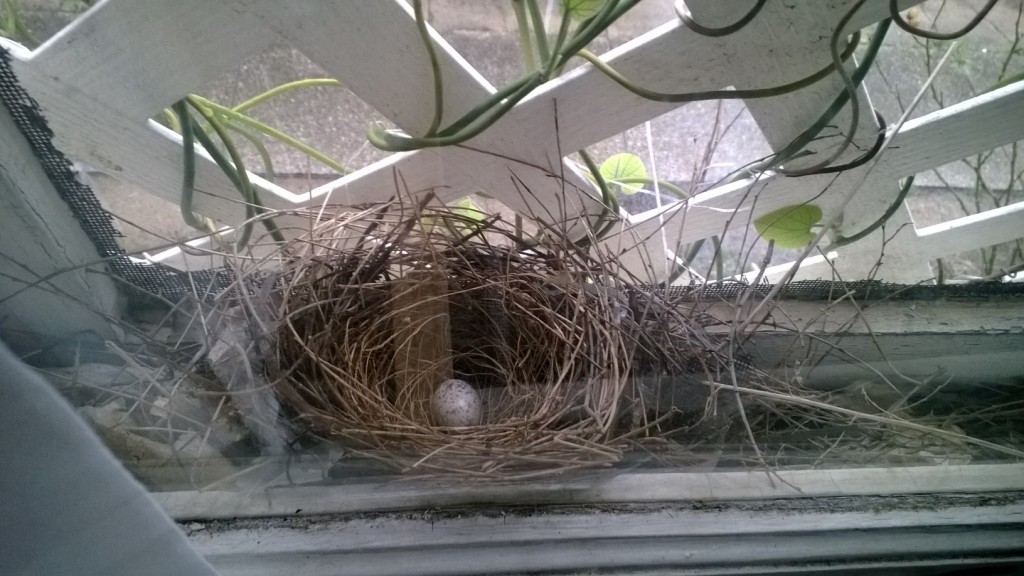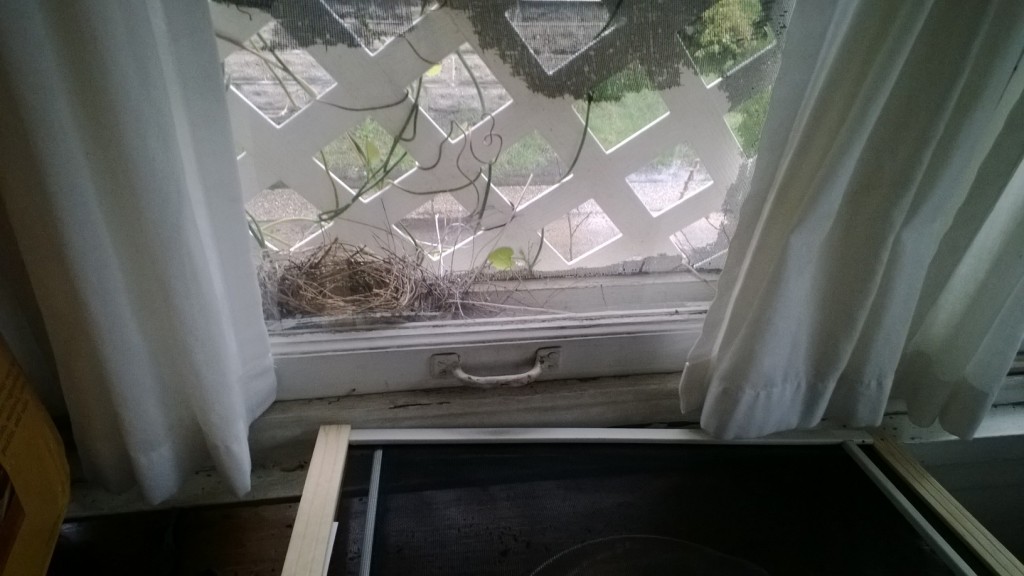I moved myself out to the porch this morning so that I could hear the rain more clearly.
I was inspired to reread Merton’s essay, “Rain and the Rhinoceros.” But first I wanted to open more windows and insert some portable screens we use.
We have two windows like this on the porch. When I went to the second one I discovered a bird had decided to build its nest in it.
I decided to leave that window closed.
I said yesterday that “The Rhinocerous” was about conformity. But both Merton and Ionesco himself say that while it’s about conformity, it’s also about totalitarianism. Ultimately they see that when everyone else in society is a monster, rebellion is as futile as transformation. Merton quotes Ionesco: “They [the spectators] leave in a void—that was my intention. It is the business of a free man to pull himself out of this void by his own power and not by the power of other people!”

So Merton’s essay uses the gratuitous nature of the rain and the image of a society of rhinoceroses to challenge the illusion of our lives lived together collectively: “Because we live in a womb of collective illusion, freedom remains abortive. Our capacities for joy, peace and truth are never liberated… we are prisoners of a process, a dialectic of false promises and real deceptions ending in futility.”

You would never guess from reading these quotes from Merton that most of this essay, especially the beginning and ending hinge on the uselessness of rain and is rendered in almost poetic prose.
As I reread it this morning listening to the rain, the word, “collective,” rang around in my head. I realized that I had read a different take on this in our present society. That was in Kent Greenfield’s book, The Myth of Choice: Personal Responsibility in a World of Limits.
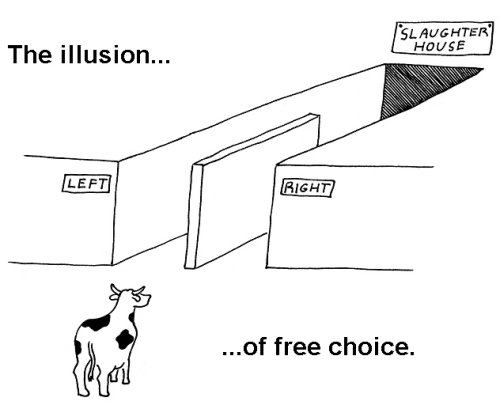
Toward the end of the second section he calls “Limits and Influences” Greenfield makes the point that markets take away societal action and replace it with so many individual choices that the very idea of a social group determining its fate is “elbowed aside.”

He gives the example of when a box store like WalMart moves into a community. Before the box store, many smaller stores owned by locals provided people in the community with commodities. After the box store, people in the community make many individual decisions to purchase cheaper items at the Walmart type store.

The result is that locally owned businesses fail and probably the downtown dries up. At no point was there a collective decision to have this happen. The market elbowed aside any collective decision-making with many, many decisions by individuals to purchase specific items cheaper at the larger store.

Greenwood speculates that the change that results might not be the one the community would choose given a chance to do so.

This makes me ask the question: have we devolved even further into a new totalitarianism, a hollow and almost automatic loss of community replaced by groups of individual consumers and the corporations that sell things to them?
Suddenly, Tehran’s Mayor Becomes a Patron of the Arts – NYTimes.com
Billboards with art on them. Excellent concept.
After Nearly Claiming His Life, Ebola Lurked in a Doctor’s Eye – NYTimes.com
Science at its best.
A Rough Guide to Spotting Bad Science
12 points to consider when reading about science. They apply in other areas as well.
